Scottish Policy Group host a marine-themed Pie and a Pint in Aberdeen
Hear what our newest committee member learned about getting the balance right in offshore renewables.
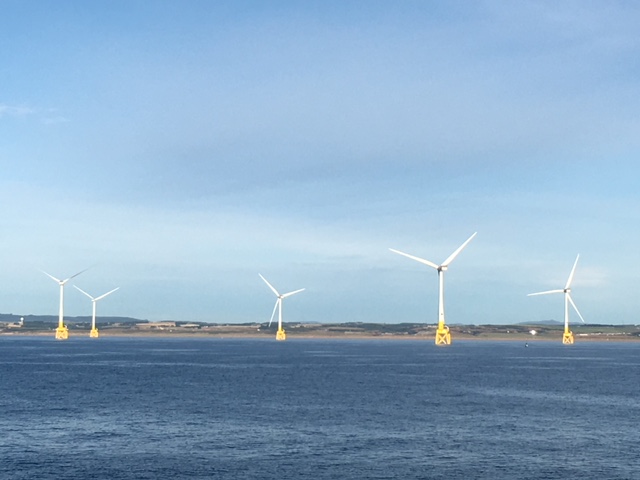
The recent British Ecological Society-Scottish Policy Group (SPG) Pie and a Pint (PAAP) in Aberdeen was well worth my journey up from Edinburgh. The ‘sold-out’ event attracted many interested individuals who came to discuss the theme: “Striking the right balance in offshore renewables: ecosystem effects, trade-offs and climate change”. This was a great night that left me wanting to learn much more about the topic.
Kicking off the event
To begin, Chair of the BES-SPG and chair for the night, Dr Ruth Mitchell, welcomed everyone and took a poll of the room that revealed attendees were a mix of industry professionals, academics, students, and other interested individuals. Around half the attendees were already members of the BES – a great reminder of the outreach potential that such PAAP events have to spark new interest in the work of the BES and the SPG.
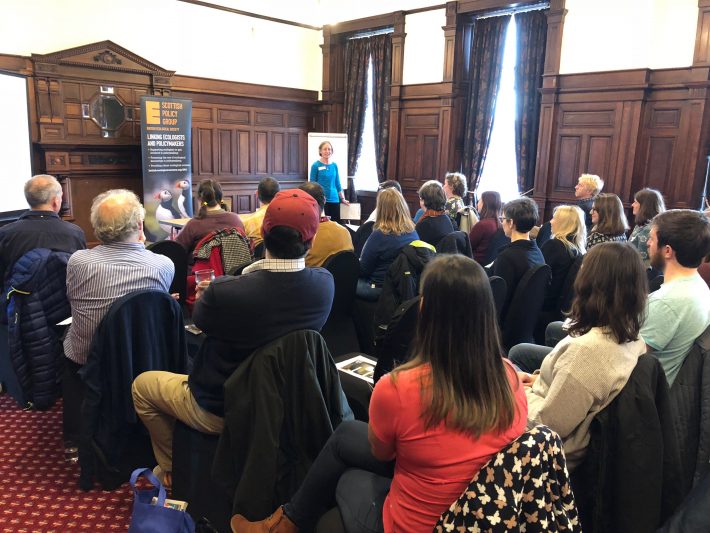
As it was the first marine-themed PAAP, Ruth began by highlighting how vital marine ecosystems and coastlines are to Scotland. With 19,000 km of coastline which is around 8% of Europe’s total, many of Scotland’s inhabitants are never more than a few km from the coast. There are also many marine industries located close to Scotland’s coastline that are important both economically and culturally to rural and coastal communities.
Speed talks
For the main event, the five speakers had to condense their views on the topic to six-minute speeches. George Lees, the SNH Policy and Advice Manager in Marine Energy and Development, began the evening by highlighting some of the problems within environmental consenting in developing renewables.
The second presentation was from Dr. Francis Daunt from the Centre for Ecology & Hydrology who focused on the issues surrounding ecological assessment. Dr. Daunt suggested that before we think about “getting the balance right” we should focus first on “getting the biology right”. At present, regarding seabirds, we have little understanding of species baselines, lethal or displacement effects of renewables, or the future challenges that will be faced alongside environmental changes.
The third speaker, Dr. Carol Sparling from Sea Mammal Research Unit Consulting, pointed out that although renewables are one way to reduce our greenhouse gas emissions, there are still negative impacts that need to be considered – such as underwater noise that can result in disturbance and displacement of species. I thought it was impactful that she finished her speech by saying “If I’ve done my job right, in ten years time, I will be out of a job”.
Personally, I felt very engaged with the fourth presentation by Zoe Crutchfield from Marine Scotland Licensing Operations Team. She aimed to make the audience think about balancing the needs of our energy demands and our already “busy sea”. I thought it was evocative when she reminded the room of a power outage which happened during the 1970’s and it shows how we need to get the energy mix right to ensure this doesn’t happen again. She also questioned how many opportunities we have missed out on because of our precautionary approach.
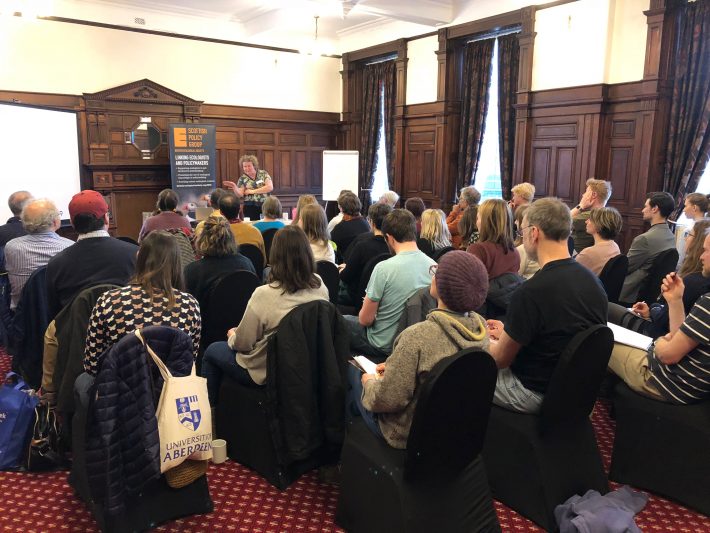
The final presentation by Professor Beth Scott from the University of Aberdeen, gave an emphatic yes to the first question of whether mitigating climate change should be our most important policy. She also argued that we have to think both locally and globally. For instance, there aren’t that many locations in the world where there is as much renewable energy on offer as in Scotland’s waters and if we don’t produce it here how is that energy going to be produced? She left us with the question “what is fair?” – an important question considering that climate change will not occur fairly across space and time.
Workshop-Style Discussions
After the speaker talks and Q & A, we were given a chance to express our opinions through workshop-style discussions. We split into groups to tackle three main questions:
- Should mitigating climate change be the most important policy driver?
- Are we dealing with trade-offs effectively?
- Are decisions being made at the right scale?
When we reconvened, each group’s main points were presented back to everyone attending. Overall, it was evident that there was a considerable amount of crossover between groups. There was broad agreement on the need for climate change being the main policy driver, improving our evaluation of trade-offs, and spending less time focused on specific windfarm development and more time examining how it is working across the entire system.
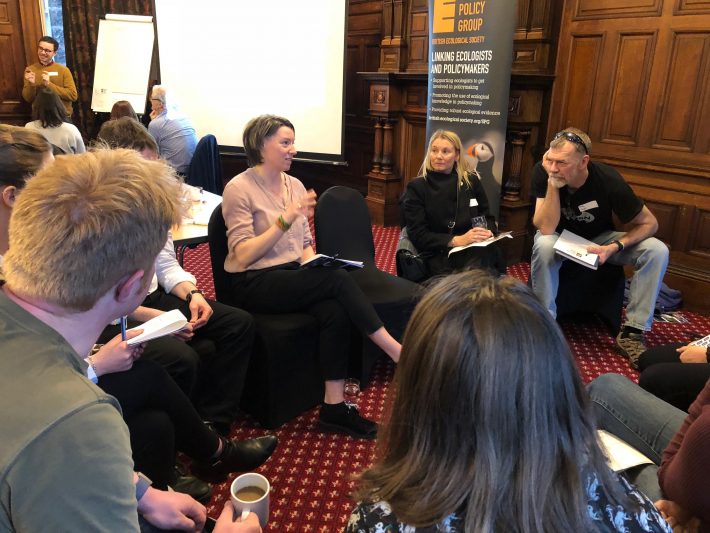
Pies & pints
To cap off the evening, we mingled over free pies and pints. It was clear that many had enjoyed learning about and discussing the challenges presented by renewables. I felt that it was an interesting opportunity to hear from many dedicated and knowledgeable individuals about their marine work focused on renewables. I left the event feeling I had learnt a great deal, but I also wanted to know much more. I found myself asking questions like: “Are we too cautious when we have little time to make the needed changes?”; “If climate change is currently one of our greatest challenges, should our policies reflect that?”; “What is fair when climate change impacts will not be reflected fairly across scales (i.e. locally and globally) ?”; and finally “Where do we go from here?” It seems I will have to keep reading, listening and asking questions.
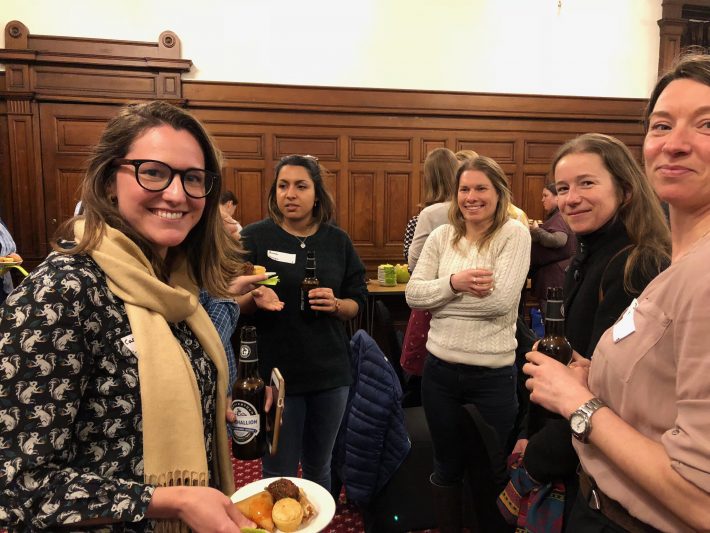
I look forward to the next PAAP in the autumn, where I’m sure I will leave again with a great desire to expand my knowledge on what the evening’s topic reveals.
A report of the event will be published shortly.
Like what we stand for?
Support our mission and help develop the next generation of ecologists by donating to the British Ecological Society.